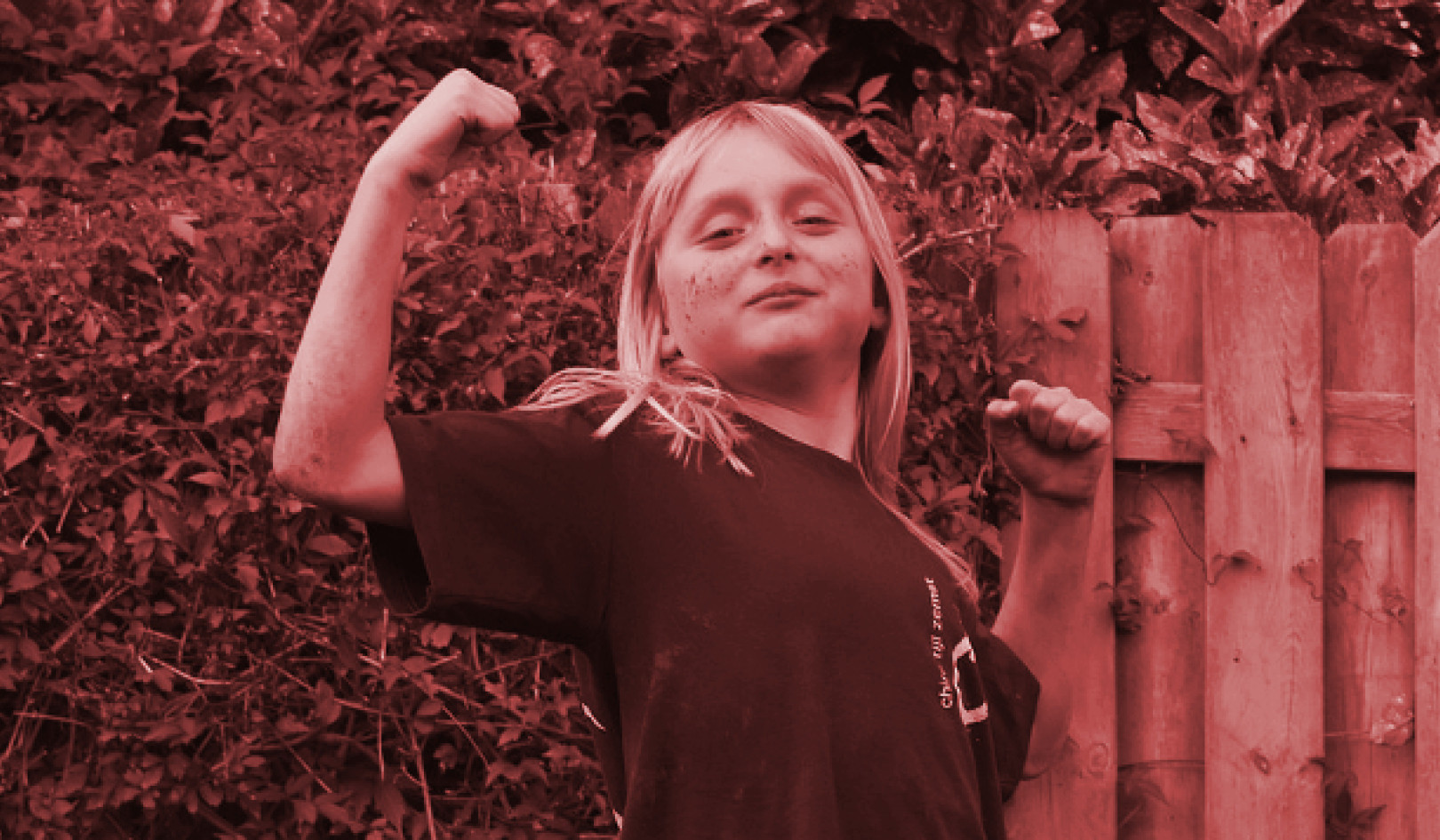
Humans have a funny orientation toward life. Although their heads remain securely attached to their bodies, their minds often drift off into the past or leap ahead into the future. You know what I mean. You’re at your son’s birthday party serving cake to all the four-year-olds, and instead of enjoying the moment, you’re wondering what their parents will say about your party after they’ve gone.
Or, in an equally possible scenario, you might be doling out cake slices to those four-year-olds while agonizing about the fight you had on the phone that morning with your mother, who wanted to come to the party but didn’t want to drive in the rain. She was angry that you wouldn’t pick her up and take her home, and you’re feeling guilty for saying no because you had so much to do.
Although you’re trying to have a good time on your son’s behalf, you’re so lost in your own thoughts of past and future that you can barely figure out who has cake and who doesn’t.
This is not what we call living consciously — that is, with intent and awareness and a focus on the here and now. That only happens when all your energy — mental and physical — is directed toward the present moment.
Of course, no one does this conscious-living thing perfectly, so the idea isn’t to always be grounded in the present, but to be there as often as possible, certainly more often than not; know when you’re slipping out of it; and be able to bring yourself back as quickly as possible.
The goal is to stay intentionally conscious except when you purposely want to shut off your mind and attention and give yourself a large or small mental vacation.
Mentally Disappearing
There are two ways we miss out on the here and now. Both are perfectly natural, human tendencies, but with skill and practice, they can be limited in order to enhance our eating and our lives.
1) Living on Autopilot
When we live on autopilot, we’re not necessarily dwelling on the past or catapulting our thoughts into the future. In fact, our minds are in a kind of netherworld, as if our brains have shifted, unbeknownst to us, into pause mode. We’re not consciously thinking about other things, nor are we concentrating on what we’re doing.
This experience often happens when you’re doing routine tasks like mowing the lawn, ironing, or chopping vegetables. You’re not cogitating on something else; in fact, you’re not cogitating at all. Your body is definitely engaged in activity, but your mind isn’t.
This is not necessarily a negative occurrence. There’s a distinct pleasure in doing repetitive tasks that demand little attention. They give your busy, weary mind a nice little break, perhaps the equivalent of taking an intentional catnap when you’re tired in the middle of a hectic afternoon. When you purposely choose to shut off your mind and let your body do its thing, you may benefit greatly from the experience.
However, when you live on autopilot, whether you’ve intentionally chosen to or not, that’s quite another thing. And this is often what dysregulated eaters do. They feel such pressure to get so many things done so perfectly that they whiz through the day without putting attention on any of them.
If they’re not zipping the kids to school, they’re rushing off to work and racing through the day to get back to pick up the kids and throw together dinner. They do what they think they ought to do and miss out mentally on the actual experience of doing it. That’s why at the dinner table when you ask your son how his day went, he says, “Mo-om, I told you all about it in the car on the way home. Weren’t you listening?” Well, no, Mom, actually you weren’t. In fact, you have no idea what was in your mind, except you seemed to have paid enough attention to driving to have ferried the kids home safely.
In Care of the Soul: A Guide for Cultivating Depth and Sacredness in Everyday Life, a book that sounds religious but is quite secular, author Thomas Moore shines a light on how little attention we pay to everyday life and how greatly we suffer for it. He teaches us to see each moment as sacred, as precious, as a building block of life.
As Moore sees it, we want to be as fully engaged in washing dishes as in life’s grander moments, as present to suffering as to joy, as eager to partake in the mundane, routine aspects of life as we are to experience the extraordinary, unique, mind-blowing ones.
This makes sense, since there are many more humdrum moments than astounding or exceptional ones. If we pay attention only to the “big events,” then we miss most of what happens to us. However, if we treat every moment as worthwhile, with full engagement, we live more richly and fully.
2) Living in the Past or the Future
When I talk about living in the past or future, I mean shifting mental awareness away from the present and recalling what’s come before or anticipating what lies ahead. This is a mental process, not a physical act, and there’s nothing wrong with thinking about the past or the future if we do it intentionally and purposefully.
There are lots of excellent reasons to deliberately call up memories. We enjoy reminiscing about earlier times because it brings us pleasure and is often a bonding experience if we do it with others we knew way back when. Even on a practical level, thinking about the past is important for, say, recalling how we did something at work that turned out well, so that we can repeat our success.
When we intentionally seek out memories, we generally recognize why we’re doing so. You want to pull up that rice pudding recipe because you’re having the family over for Thanksgiving and everyone loves it. You want to linger over memories of your brother because that makes you feel closer to him and miss him less.
But what about those times you suddenly experience a memory, and it snatches you up and plunks you on its merry-go-round and won’t let you off? Like the time you totally forgot what you were talking about while you were chairing a business meeting, and you couldn’t seem to find the point you wanted to make anywhere in your notes. How embarrassing was that! It’s awful to remember your shame, yet somehow you can’t stop recycling the memory.
Or perhaps you keep going over the decision you made to give notice at your job at the end of the month — you find yourself hurtling back and forth between being sure you are doing the right thing in leaving work you hate and being terrified that you’ll never find another job.
Being hijacked by memory is an unpleasant experience. There’s a sense of helplessness, panic, and frustration, which feels a great deal like being trapped in a compulsion. This discomfort is often caused by the overwhelming drive to travel back in time and undo what you did.
Regularly engaging in this kind of mental-do-over mind game can consume so much energy that you have little left over for the present.
Trapped in the Memory Time Warp
As unpleasant as it is to be trapped in the time warp of memory, it’s equally agonizing to try to catapult yourself into the future, another mission impossible. Our efforts to do this spring from wanting to make sure life will be okay (actually, that we will be okay) when we get to wherever we think we’re going.
Here are some examples. You obsess about being a specific weight or clothes size for the cruise you’ve booked with your high school friends. Or maybe you start planning out every minute of the visit your parents are making to your new house next weekend, so you can be sure they’ll have a pleasant time. Or perhaps you can’t stop thinking about your upcoming gastric bypass surgery.
Do you know what all these situations have in common? In each of them, you want to rush into the future and fix it, so that when you get there you’ll be fine.
Please don’t feel bad if you engage in this kind of mental gymnastics on a regular basis. It’s another one of those quirks of being human. But it doesn’t make your life work better, does it?
The Now Is Always Waiting For You
Assuming you do yearn for a more conscious existence, please recognize that the now is always waiting for you. You don’t have to search for it.
Whenever you lose track of time because you’re absorbed in an activity or creative process, you’re in the now. In these moments, something happens in our brains that brings us to attention and floods us with enormous pleasure. People have many names for this experience, and the ones I use are peace and awe.
How Do I Stay Conscious When I Don’t Even Know When I Exit Reality?
One easy way to know that you’ve spaced out from reality is when you find yourself ruminating about the past or worrying about the future. Remember, you can’t be in two places at once!
Get in the habit of asking yourself routinely during the day: Where am I? Asking this question breaks the spell cast over you by wherever you’ve been hanging out.
If you’ve been caught up in some memory fruitlessly trying to plot a better ending for it, you’ll be automatically bounced back to the present by simply noticing where you are. If you’ve been attempting to stealthily creep up on the future to make it turn out all right, asking yourself where you are will yank you back to where you belong.
Being Connected to What's At Our Feet
Living consciously means trying to be present to every minute, and not being obsessively attached to future outcomes — to success or to avoiding someone else’s displeasure down the line. It means not ruining your current enjoyment by feeling guilt, shame, or remorse. These emotions are the antithesis of enjoying the here and now.
Be most connected to what’s at your feet, not to what’s down the road those feet are traveling on. Of course, you always want to keep in mind where you’re heading, and there’s nothing wrong with planning for the future. But you don’t want to keep your eyes glued to it so that you miss the reality at hand.
Slowing Down and Focusing on the Present Moment
By slowing down and focusing all your senses on the present moment, you can live more consciously. At any time of the day, ask yourself what you see, hear, smell, and feel through touch.
When you find yourself racing through the day, intentionally slow down or stop for a moment and ask, What’s the rush? Rather than transitioning from one task directly to another, pause between tasks and take a few delicious deep breaths.
Ah, there, now you’re living consciously.
©2015 by Karen R. Koenig.
Reprinted with permission of the publisher,
New World Library. www.newworldlibrary.com
Article Source
 Outsmarting Overeating: Boost Your Life Skills, End Your Food Problems
Outsmarting Overeating: Boost Your Life Skills, End Your Food Problems
by Karen R. Koenig.
Click here for more info and/or to order this book.
Watch a video: Karen R. Koenig on her new book "Outsmarting Overeating"
About the Author
 Karen R. Koenig is a psychotherapist, national educator, international author, and an expert on the psychology of eating--the how and why, not the what, of it. For more than three decades, her mission has been to help people with eating and weight problems learn to eat "normally" and maintain a healthy, stable weight for life without dieting and deprivation. Her therapy practice is in Sarasota, FL, where she does tele-coaching and Skype consultation worldwide. As a recovered chronic dieter and binge-eater, she melds her personal recovery wisdom with professional knowledge and experience to resolve eating problems. Her other books include--Nice Girls Finish Fat, The Rules Of "normal" Eating, The Food And Feelings Workbook, and What Every Therapist Needs To Know About Treating Eating And Weight Issues. Visit her website--www.eatingnormal.com.
Karen R. Koenig is a psychotherapist, national educator, international author, and an expert on the psychology of eating--the how and why, not the what, of it. For more than three decades, her mission has been to help people with eating and weight problems learn to eat "normally" and maintain a healthy, stable weight for life without dieting and deprivation. Her therapy practice is in Sarasota, FL, where she does tele-coaching and Skype consultation worldwide. As a recovered chronic dieter and binge-eater, she melds her personal recovery wisdom with professional knowledge and experience to resolve eating problems. Her other books include--Nice Girls Finish Fat, The Rules Of "normal" Eating, The Food And Feelings Workbook, and What Every Therapist Needs To Know About Treating Eating And Weight Issues. Visit her website--www.eatingnormal.com.






















